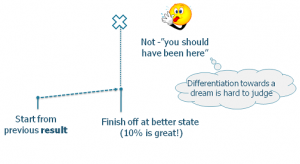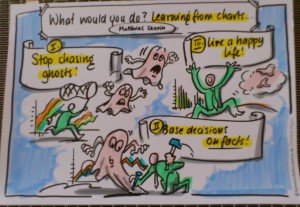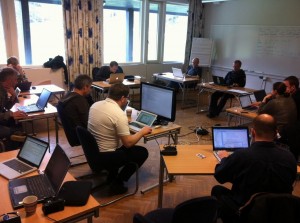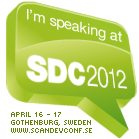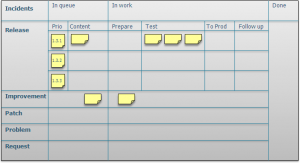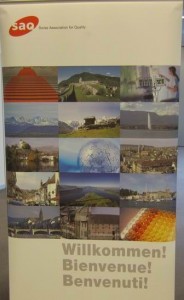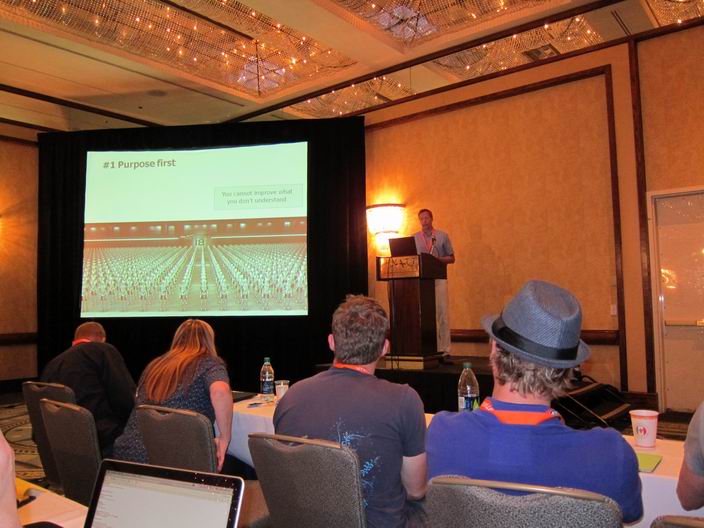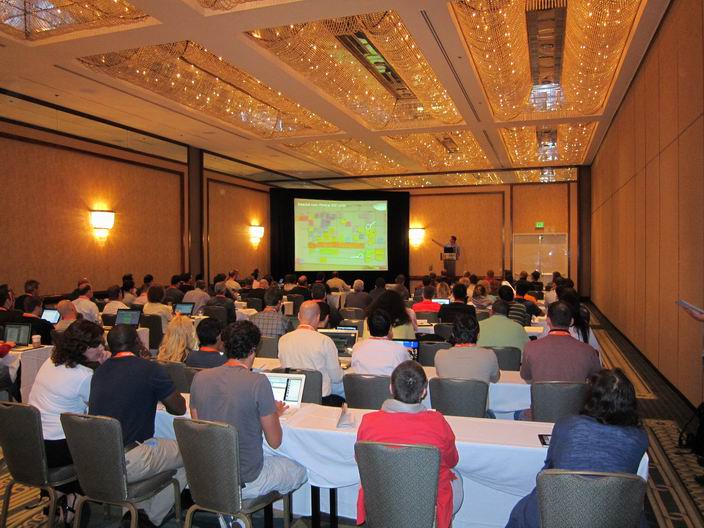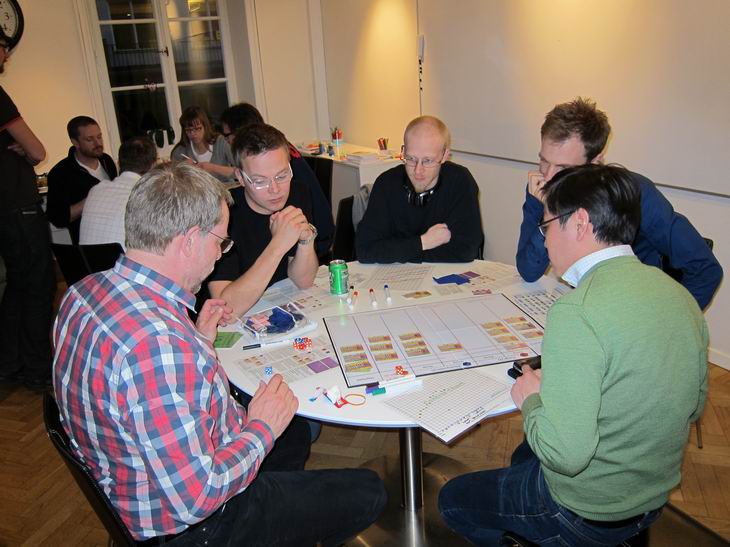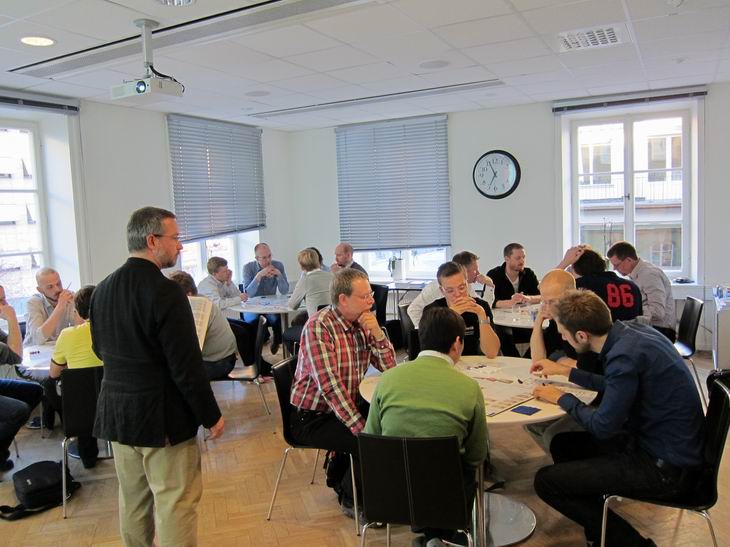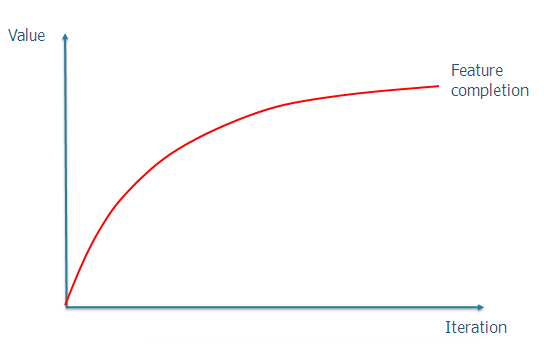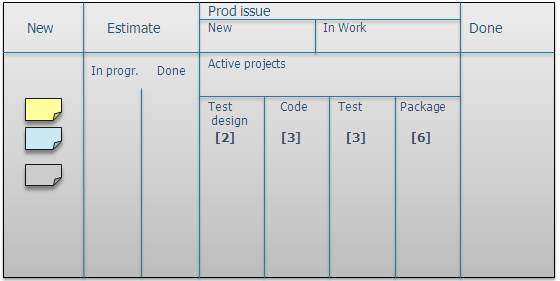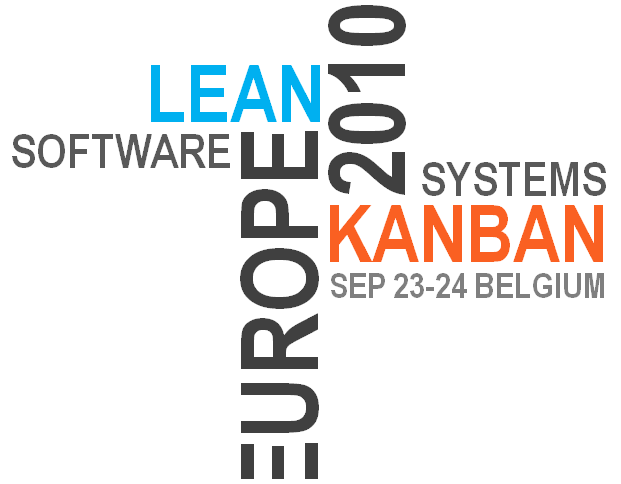If you prefer this as an article – you can download it here.
What is continuous improvement?
Continuous improvement always starts by observing previous results. That is our baseline for improvements forward on. We strive to improve steadily, a little at a time – 10% is great! But first step is always to accept the facts, regardless if we would have liked it to be better. It is way too easy to sweep failed projects under the carpet rather than used as a baseline for improvements forward on. A mistake easily made is to base improvements on dream targets rather than previous results, it is hard to learn something from failure to meet those targets.
